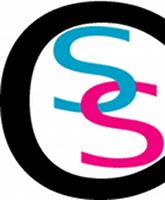Breakout Sessions for Friday, November 8, 2024
Join us for a conversation with the ESIIL workshop leaders and our keynote speakers: Elsa Culler, ESIIL, Alicia Foxx, Chicago Botanic Garden and Northwestern University, Nathan Quarderer, ESIIL, Jim Sanovia, University of Colorado, Boulder, and Elisha YellowThunder, South Dakota State University
Higher highs, lower lows, storms, and smoke -- we're all feeling the effects of climate change. As science and math educators, students are looking to us to help make sense of their changing environments. In this classroom activity, we will investigate the 2024 heat wave in the Chicago area — or any time and place that is meaningful to you or your students. This activity can support a variety of domain-specific topics in biology, physics, math, environmental science, and public health — all while teaching fundamental computational skills. As part of the activity, we will use data from the National Centers for Environmental Information, will discuss the critical link between FAIR (findable, accessible, interoperable, and reproducible) data and cultural and/or personal relevance. By the end of the session, you will have the skills and resources you need to facilitate a computational climate change activity as an element in your next class.
Meaningful projects may be the key to classroom inclusion — but meaningful work is often tough, emotional work. As STEM educators we aren’t usually trained to productively channel student’s emotions and experiences. In this session we will cover three frameworks that we use at the Earth Data Science Innovation and Inclusion Lab to foster innovative, cross-cultural science teamwork: active listening, ethical space, and the “groan zone”. Active listening is an important skill for constructing a classroom environment where team members can express potentially traumatic or upsetting experiences that motivate their learning and inquiry goals. Ethical space is a framework for collaborating across cultures while respecting all team-members' contributions and sovereignty. Finally, the “groan zone” refers to the fact that learning and innovating is inherently uncomfortable, and teams who can’t tolerate that discomfort miss out on the juicy and impactful ideas and understanding that lies on the other side. In this workshop, we will present these three frameworks, practice them using role play, and discuss some ways they can be used to facilitate cross-cultural student projects.
Many students who graduate with science degrees say they did not receive the training they needed in computational skills. Indeed, we’ve observed that many departments would not hire their own undergraduates to do research because they lack coding skills. It is urgent to inject these skills into all kinds of science and math classrooms so that students feel confident applying for jobs and graduate programs in their field. In this workshop we will explore strategies that non-expert programmers can use to expose students to coding. We will discuss teaching coding using AI, teaching debugging skills rather than computer science concepts, and setting up an environment where students can support each other.
Tradition and technology need not be in conflict; in the right environment they enrich each other. Indigenous Data Scientists Jim Sanovia and Elisha YellowThunder, with a track record of mentoring and leading cultural environmental data science throughout their decades of experience as students and faculty at Tribal Colleges, are living proof. Join in their call for inclusive and culturally-relevant STEM education at this special workshop session of the Chicago Symposium. Through personal stories and other examples from successful Indigenous STEM programs, Sanovia and YellowThunder will show the importance of cultural insight and inquiry in STEM.
